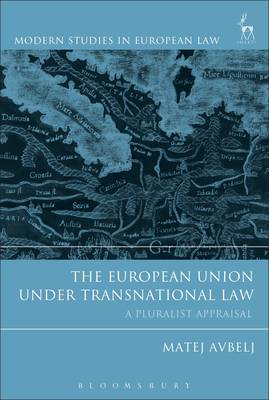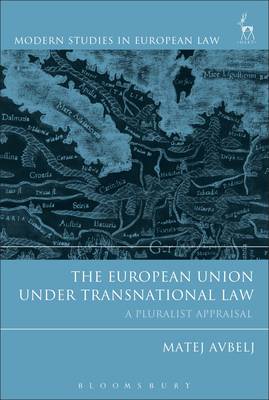
Bedankt voor het vertrouwen het afgelopen jaar! Om jou te bedanken bieden we GRATIS verzending (in België) aan op alles gedurende de hele maand januari.
- Afhalen na 1 uur in een winkel met voorraad
- In januari gratis thuislevering in België
- Ruim aanbod met 7 miljoen producten
Bedankt voor het vertrouwen het afgelopen jaar! Om jou te bedanken bieden we GRATIS verzending (in België) aan op alles gedurende de hele maand januari.
- Afhalen na 1 uur in een winkel met voorraad
- In januari gratis thuislevering in België
- Ruim aanbod met 7 miljoen producten
Zoeken
€ 67,95
+ 135 punten
Uitvoering
Omschrijving
For almost a decade the European Union has been stuck in a permanent crisis. Starting with domestic constitutional crises, followed by an imported financial crisis, it has evolved into a fully formed political crisis. This book argues that none of the crises are exclusively internal to the EU and the responses to date, which have taken inward looking approaches, are simply inadequate. Resolution can only come when the EU engages more fully with transnational law.
This highly topical book offers an innovative dual focus on both transnational and EU law together. It sets out the relationship between the two frameworks by exploring practical concrete problems that transnational law has posed to the EU. These problems are explored from the perspective of four key tenets of both systems, namely the rule of law, democracy, the protection of human rights, and justice. It does this by advancing the theoretical framework of principled legal pluralism. In so doing it offers clear normative guidance as to how the relationship between EU and transnational law should be developed and fostered.
This highly topical book offers an innovative dual focus on both transnational and EU law together. It sets out the relationship between the two frameworks by exploring practical concrete problems that transnational law has posed to the EU. These problems are explored from the perspective of four key tenets of both systems, namely the rule of law, democracy, the protection of human rights, and justice. It does this by advancing the theoretical framework of principled legal pluralism. In so doing it offers clear normative guidance as to how the relationship between EU and transnational law should be developed and fostered.
Specificaties
Betrokkenen
- Auteur(s):
- Uitgeverij:
Inhoud
- Aantal bladzijden:
- 192
- Taal:
- Engels
- Reeks:
Eigenschappen
- Productcode (EAN):
- 9781509938254
- Verschijningsdatum:
- 28/05/2020
- Uitvoering:
- Paperback
- Formaat:
- Trade paperback (VS)
- Afmetingen:
- 156 mm x 234 mm
- Gewicht:
- 272 g

Alleen bij Standaard Boekhandel
+ 135 punten op je klantenkaart van Standaard Boekhandel
Beoordelingen
We publiceren alleen reviews die voldoen aan de voorwaarden voor reviews. Bekijk onze voorwaarden voor reviews.









